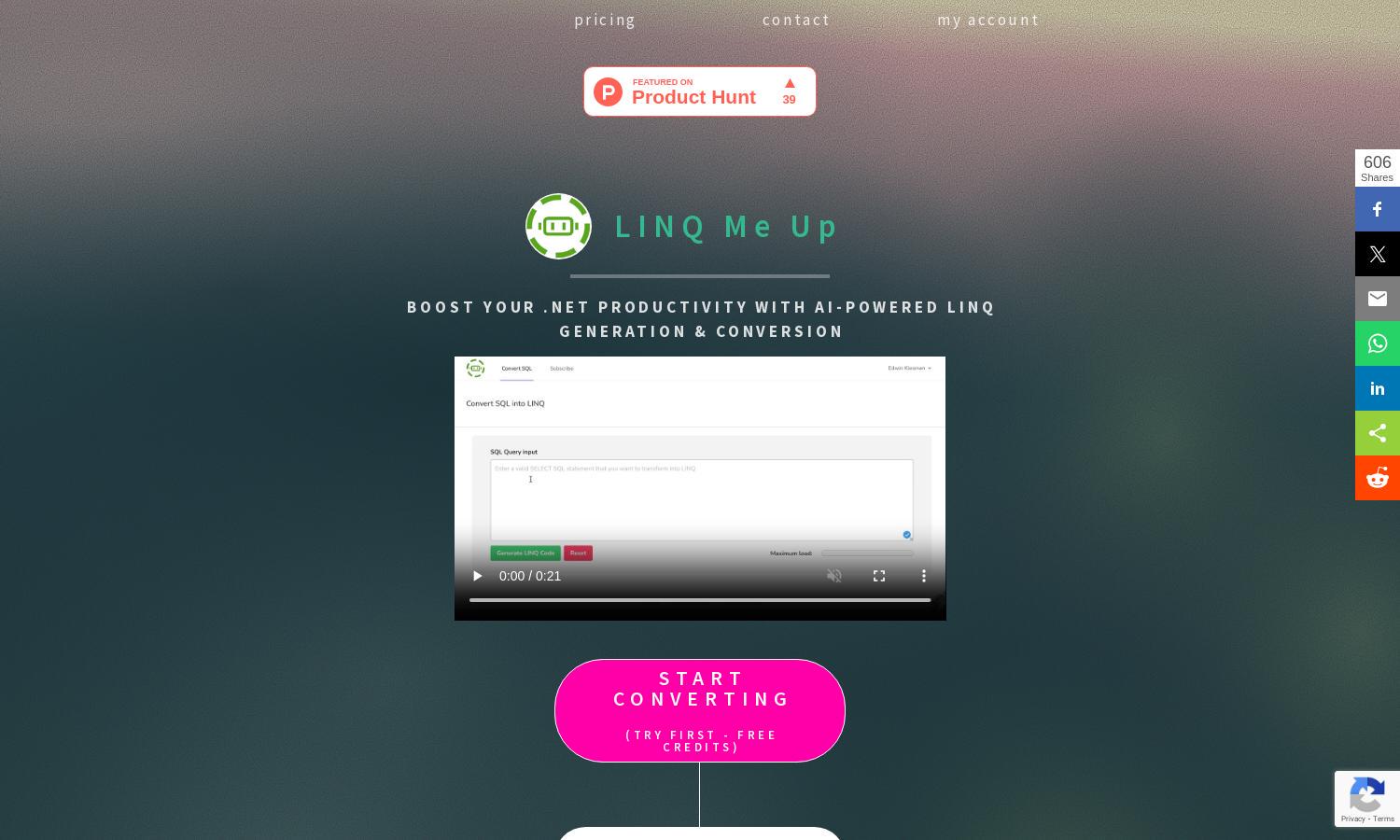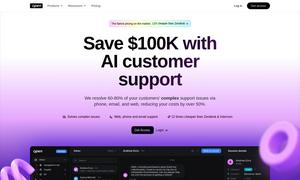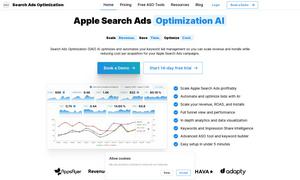LINQ Me Up

About LINQ Me Up
LINQ Me Up is a groundbreaking tool for .NET developers aimed at streamlining SQL to LINQ conversions and vice versa. By leveraging AI, it generates optimized LINQ queries based on user datasets, saving time and enhancing productivity for those working with C# and Visual Basic coding languages.
LINQ Me Up offers flexible pricing with monthly subscriptions at $4.99 and an annual plan for $50, providing unlimited conversions under a fair-use policy. Users can also purchase credit bundles at $1 per credit. Opting for a yearly plan saves $9.88 compared to monthly subscriptions.
The user interface of LINQ Me Up is designed for simplicity, enabling effortless navigation through its powerful features. With a clean layout, users can easily select conversion types, input data, and generate queries. This intuitive design ensures a seamless experience while boosting productivity in coding tasks.
How LINQ Me Up works
To get started with LINQ Me Up, users create an account to access its features. After logging in, they select whether to convert SQL to LINQ or LINQ to SQL. Users simply paste their SQL or LINQ code along with dataset input, and the AI analyzes it to generate an optimized query, making coding tasks more efficient.
Key Features for LINQ Me Up
AI-powered query conversion
The AI-powered query conversion feature of LINQ Me Up revolutionizes the way developers handle SQL and LINQ code. By automatically translating queries with optimized results, users save significant time and reduce errors, allowing them to focus on more important coding tasks and improve overall productivity.
Support for multiple coding languages
LINQ Me Up enhances flexibility with support for both C# and Visual Basic, catering to a broad range of developers. This feature enables users from various coding backgrounds to efficiently convert queries, ensuring they can utilize LINQ Me Up regardless of their preferred programming language.
Seamless dataset integration
With seamless dataset integration, LINQ Me Up allows users to generate tailored LINQ queries from diverse data types such as XML, JSON, and POCO. This unique capability empowers developers to effectively handle different datasets, enhancing the overall functionality and appeal of the platform.
You may also like:








